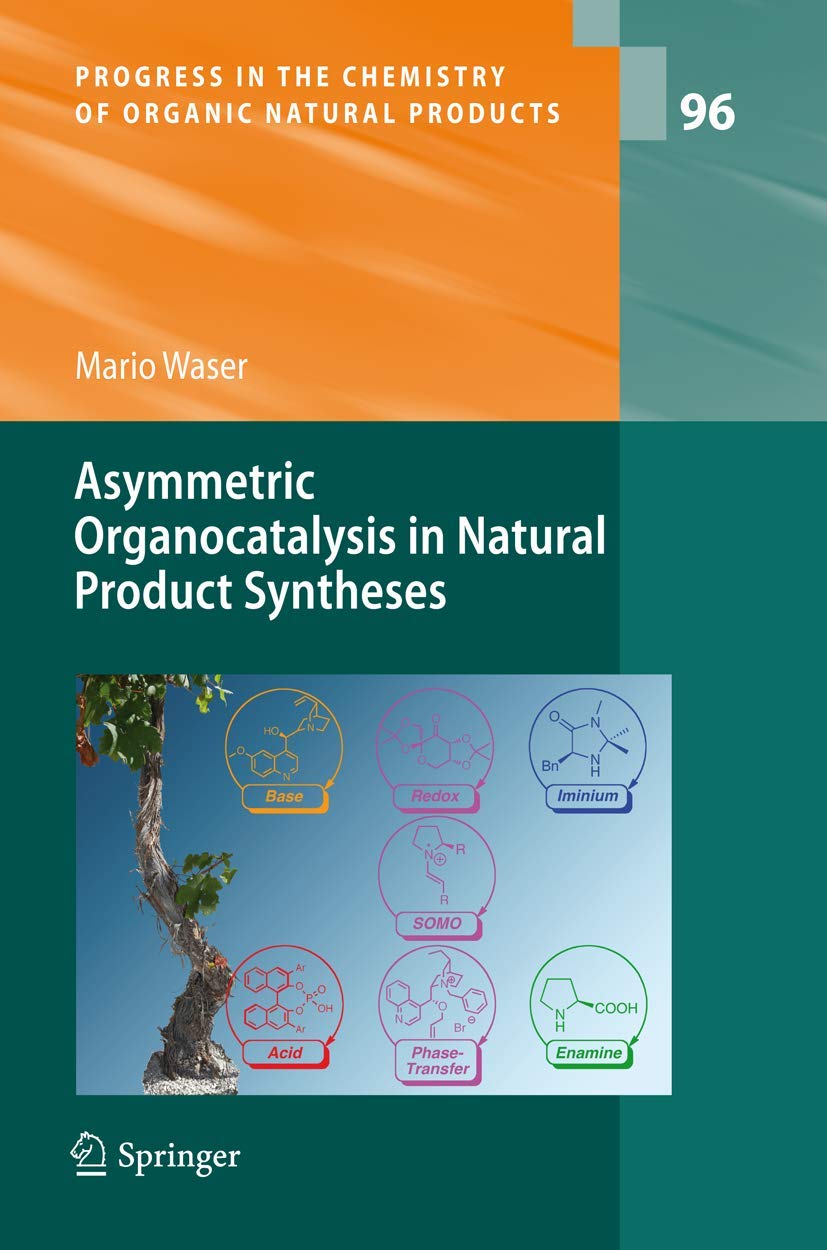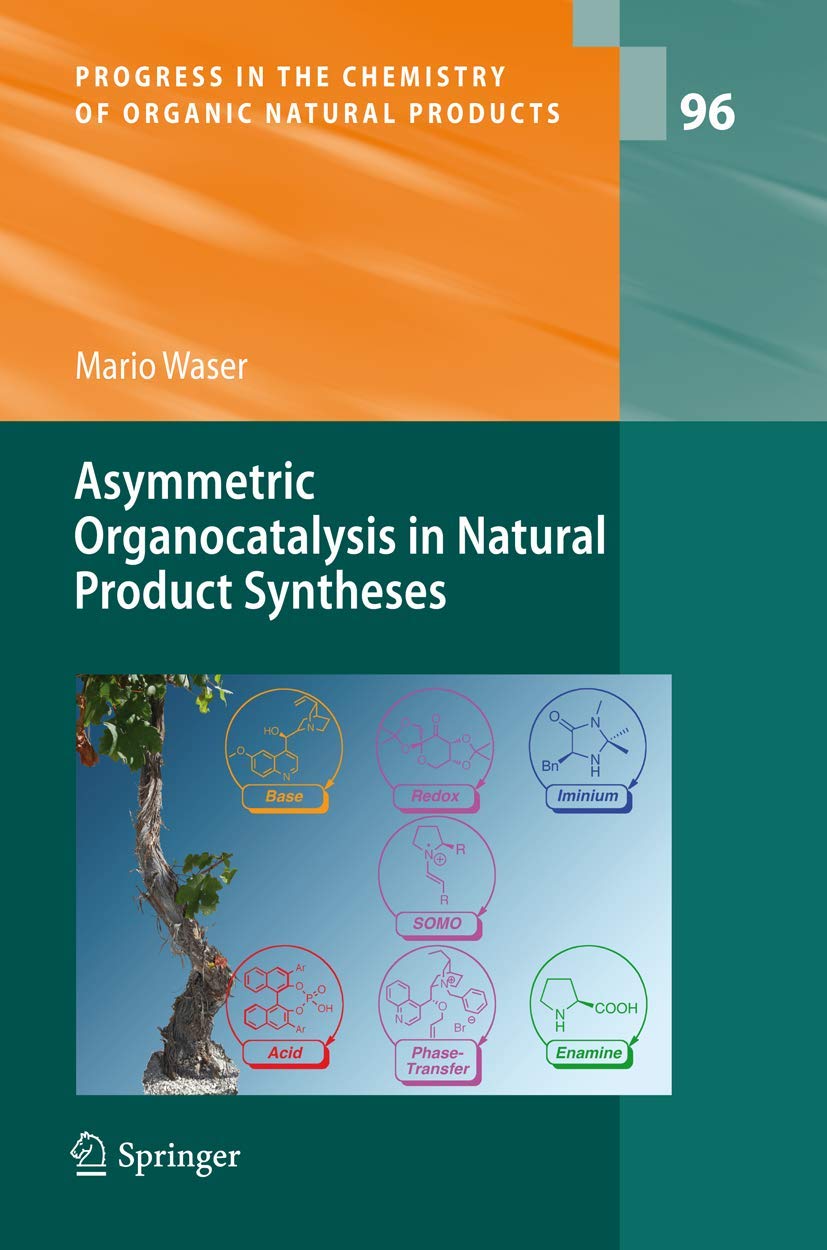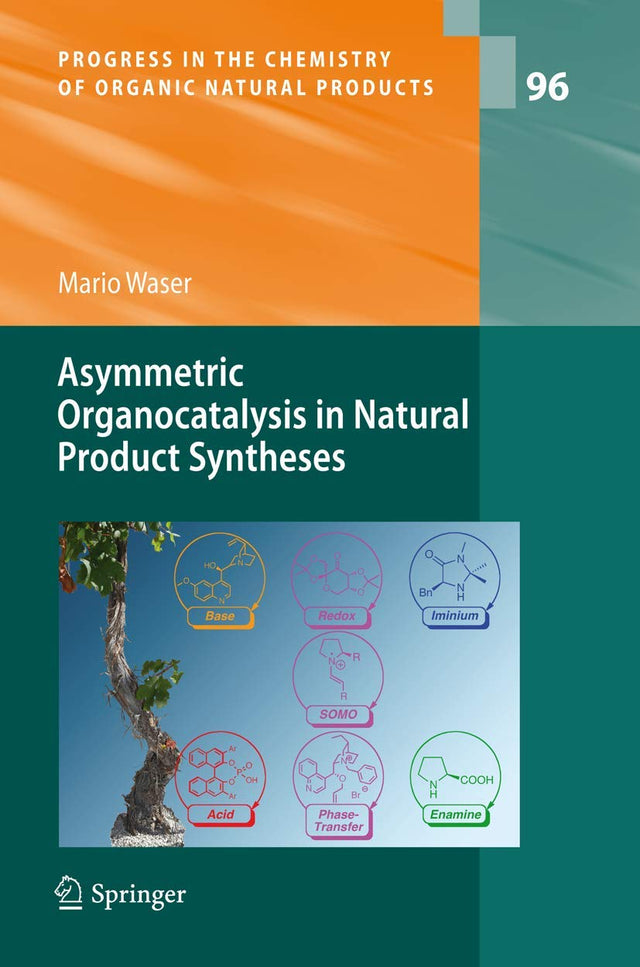Asymmetric Organocatalysis in Natural Product Syntheses: 96 (Progress in the Chemistry of Organic Natural Products)
Asymmetric Organocatalysis in Natural Product Syntheses: 96 (Progress in the Chemistry of Organic Natural Products) is backordered and will ship as soon as it is back in stock.
Couldn't load pickup availability
Genuine Products Guarantee
Genuine Products Guarantee
We guarantee 100% genuine products, and if proven otherwise, we will compensate you with 10 times the product's cost.
Delivery and Shipping
Delivery and Shipping
Products are generally ready for dispatch within 1 day and typically reach you in 3 to 5 days.
Book Details
-
Author: Mario Waser
-
Publisher: Springer
-
Edition: 2012 ed.
-
Binding: Hardcover
-
Format: Import
-
Number of Pages: 197
-
Release Date: 01-08-2012
-
ISBN: 9783709111628
-
Languages: English
-
Features: 82 black & white illustrations, 133 color illustrations
About The Book
Asymmetric Organocatalysis in Natural Product Syntheses by Mario Waser provides an in-depth exploration of the role of organocatalysis in the synthesis of natural products. This highly specialized book presents cutting-edge techniques and applications in asymmetric catalysis, a critical area in modern chemistry. With an emphasis on the strategic use of organocatalysts, it is an essential resource for researchers and students in organic chemistry, particularly those focused on the synthesis of complex natural compounds.
Through 197 pages of detailed content, the book highlights the power and efficiency of asymmetric organocatalysis in the context of natural product synthesis, covering both theoretical aspects and practical applications. It is rich in visual content with 82 black-and-white illustrations and 133 color illustrations, which help to clarify complex mechanisms and processes. This hardcover edition, first published in 2012, remains a relevant and valuable text for anyone interested in advancing their understanding of organocatalysis and its use in modern chemical synthesis.





